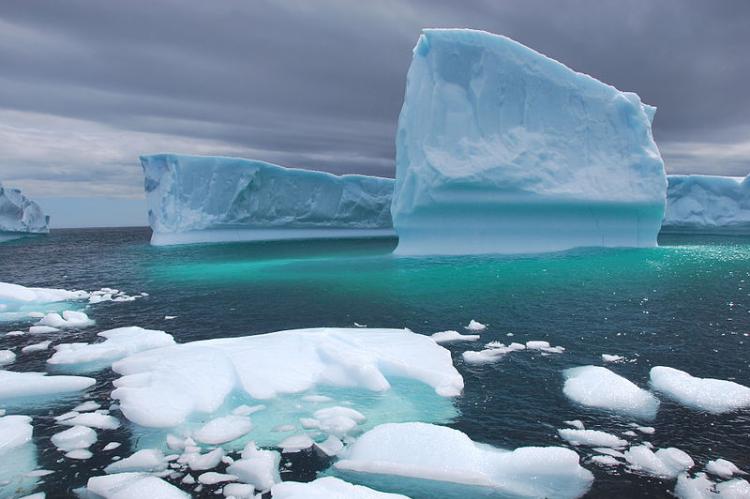Ancient ocean currents may have altered intensity of ice ages
Orbital changes alone not enough to explain sudden switch to longer ice age intervals
For decades, climate scientists have tried to explain why ice-age cycles became longer and more intense about 900,000 years ago, switching from 41,000-year cycles to 100,000-year cycles. Due to variations in earth's orbit, ice ages come and go at predictable intervals based on changing amounts of sunlight. However, orbital changes alone are not enough to explain the sudden switch to longer ice age intervals.
In a paper published in the journal Science, researchers reported that deep ocean currents that move heat around the globe stalled or may have stopped at that time, possibly due to expanding ice cover in the Northern Hemisphere. Slowing currents increased carbon dioxide (CO2) storage in the oceans, leaving less CO2 in the atmosphere. As a result, temperatures cooled, leading into a new phase of colder, but less frequent, ice ages.
Leopoldo Pena, the paper's lead author and a paleoceanographer at Columbia University's Lamont-Doherty Earth Observatory (LDEO), said the oceans started storing more carbon dioxide for a longer period of time. The past strength of Earth's ocean currents was reconstructed by sampling deep-sea sediments off the South African coast, where currents originating in the North Atlantic Ocean pass on their way to Antarctica.
How energetically those currents moved can be deduced the volume of North Atlantic water that made it to the South African coast, an amount measured by isotope ratios of the element neodymium bearing the signature of North Atlantic seawater.
Like tape recorders, the shells of ancient plankton incorporate the seawater signals through time, allowing scientists to approximate when currents grew stronger or weaker. As expected, currents strengthened during warm periods and lessened during ice ages over the last 1.2 million years. However, a marked change occurred some about 950,000 years ago, with ocean circulation slowing significantly and remaining weak for 100,000 years. During that period, the planet skipped an interglacial, the warm interval between ice ages. When the system recovered, a new phase of longer, 100,000-year ice age cycles occurred, with deep ocean currents remaining and the ice ages themselves became colder.
"Our discovery of such a major breakdown in the ocean circulation system was a big surprise," said study co-author Steven Goldstein, a geochemist at Lamont-Doherty. "It allowed the ice sheets to grow when they should have melted, triggering the first 100,000-year cycle."


